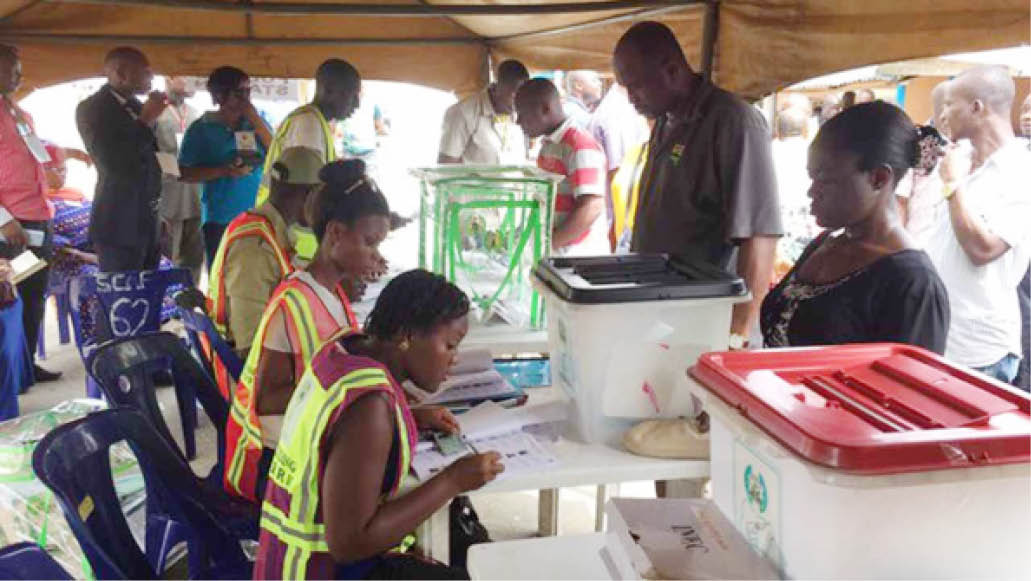A law reform organisation, Centre for Socio-Legal Studies (CSLS), has proposed the removal of immunity from criminal prosecution for members of the executive involved in electoral offences.
The centre made this known in a briefing on its memoranda for alterations to the National Assembly on the ongoing constitutional amendment.
Section 308 (1) (a) and (b) provides thus: “No civil or criminal proceedings shall be instituted or continued against a person to whom this section applies during his period of office; “A person to whom this section applies shall not be arrested or imprisoned during that period either in pursuance of the process of any court or otherwise.”
But the centre proposed that Section 308 of the Principal Act be altered by inserting a new subsection 2A after the existing subsection (2) – “(2A) The provisions of subsection (1) of this section shall not apply to proceedings instituted against a person, to whom this section applies, with respect to any electoral offence including offences created under the Electoral Act or other electoral offences.”
The proposal also seeks to create the office of the Independent Prosecutor for Electoral Offences of the Federation, and to remove the power of the Attorney General of the Federation to institute or terminate prosecutions under Section 174 of the Constitution.
The executive director of CSLS, Professor Yemi Akinseye-George, said the amendment would make it easy to prosecute sponsors of electoral offences.
The centre also submitted proposals for alterations in the Administration of Criminal Justice Act, 2015; Constitutional alteration on the appellate jurisdiction of the Supreme Court and the welfare of judges; and the alteration Code of Conduct Bureau.
On the ACJA, the centre seeks the alteration of Section 238(6)(a) and (b) to include a Judge of the High Court to continue to sit only for the purpose of concluding a “part-heard” criminal trial by a judge who has been elevated to the Court of Appeal only. And the subsection b is that “part-heard criminal matter” means a trial in which the prosecution has closed his case.
They also seek to insert a new paragraph: (c) of Section 243 (1) of the Constitution that “An application for stay of proceedings in respect of a criminal matter before the court shall not be entertained.”
On the appellate jurisdiction of the Supreme Court, the centre proposes alteration of Section 233 of the Constitution to reduce the workload on the apex court.
Thus, “(a) In subsection (2) by deleting the existing paragraphs (a) and (b); and (b) by substituting for subsection (3) the following new subsections (3), -(3) Notwithstanding the provisions of subsection (2) of this section, but subject to paragraph (e) of that section, no appeal shall lie to the Supreme Court from any decision of the Court of Appeal in respect of: (a) a decision in a matrimonial cause or matter; or (b) an interlocutory decision except with leave of the Supreme Court,” the proposal reads.
It also suggests amendment to Section 291 of the constitution on tenure of office and pension rights of judicial officers. The amendment is to substitute sub-section 1 that the judge of Customary Court of Appeal of a state may retire when he attains the age of 65 years and he shall cease to hold office when he attains the age of 70.
The proposal for the alteration of the existing paragraph 1 of the Code of Conduct Bureau (CCB) shall include membership from the six geo-political zones of Nigeria and other amendments in accordance with Section 157 of the Nigerian Constitution, 1999, and other alterations.

 Join Daily Trust WhatsApp Community For Quick Access To News and Happenings Around You.
Join Daily Trust WhatsApp Community For Quick Access To News and Happenings Around You.


